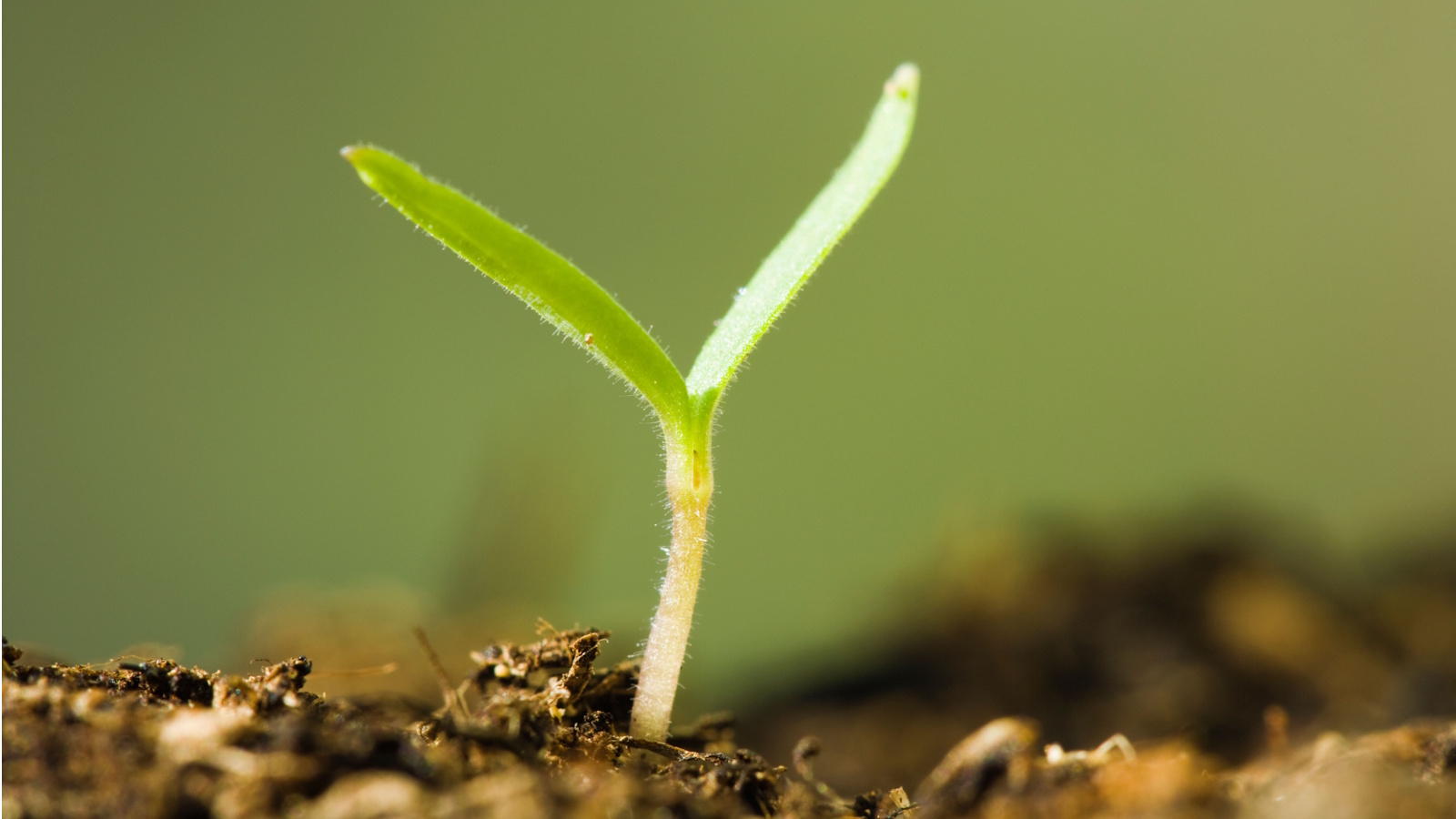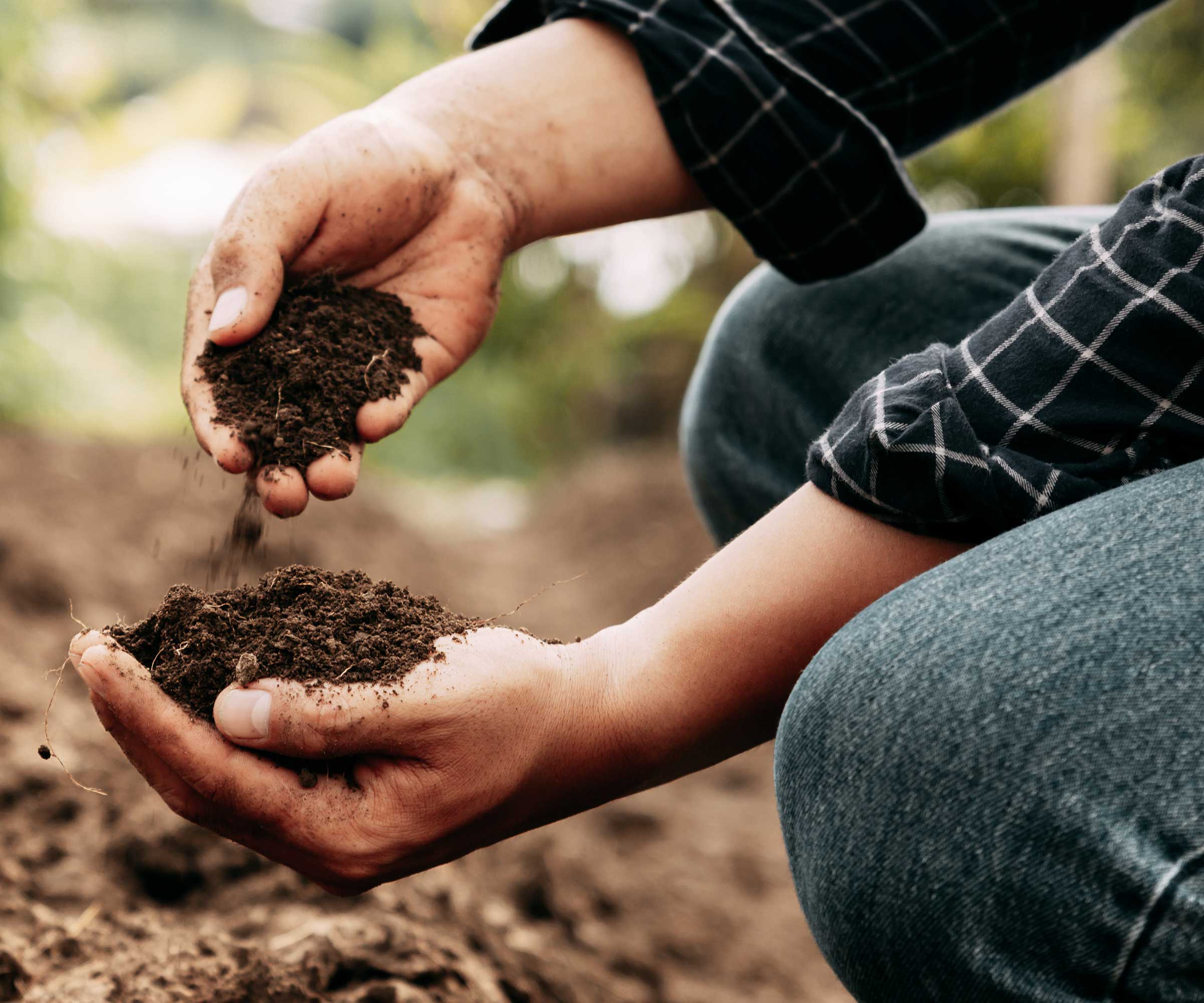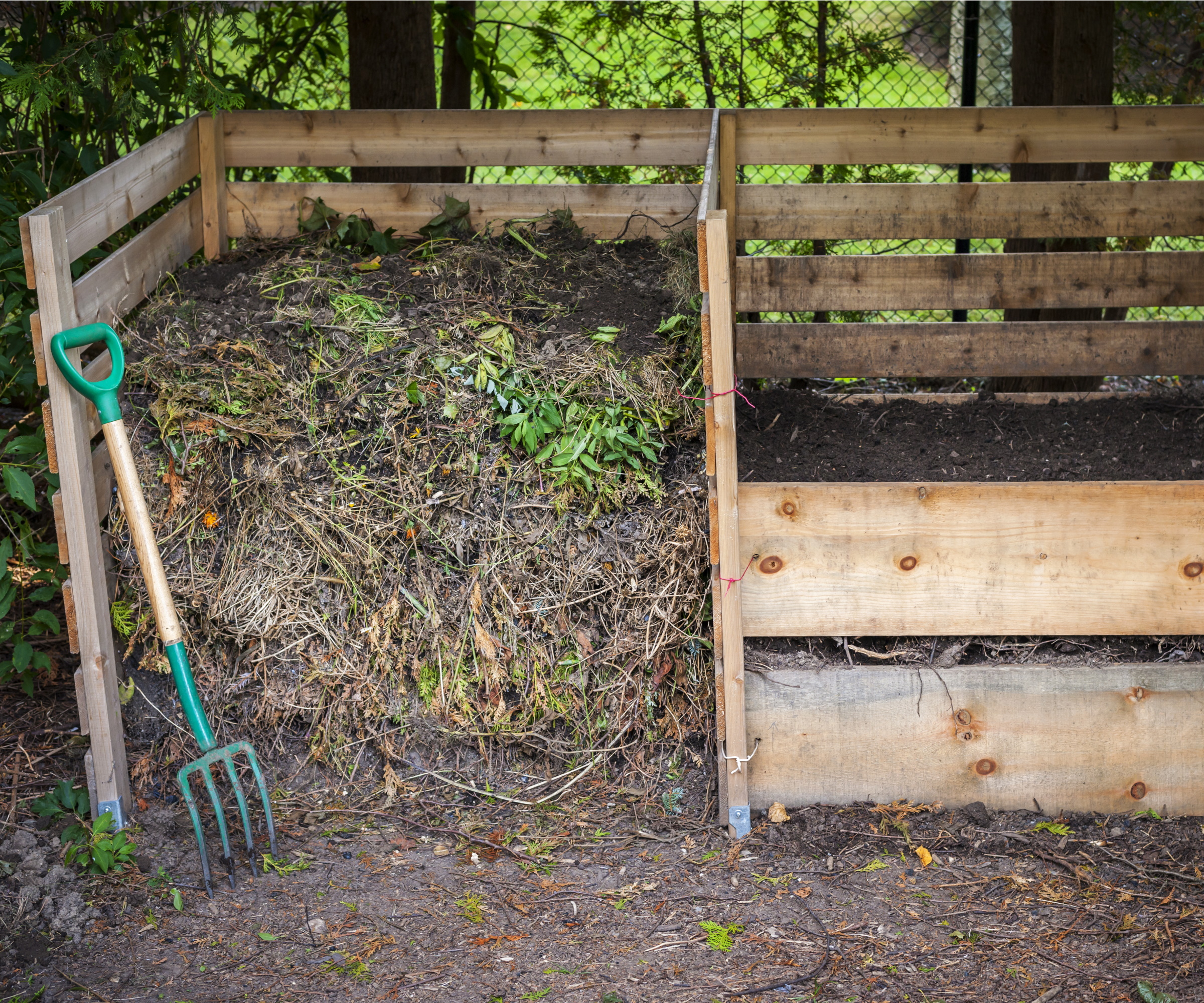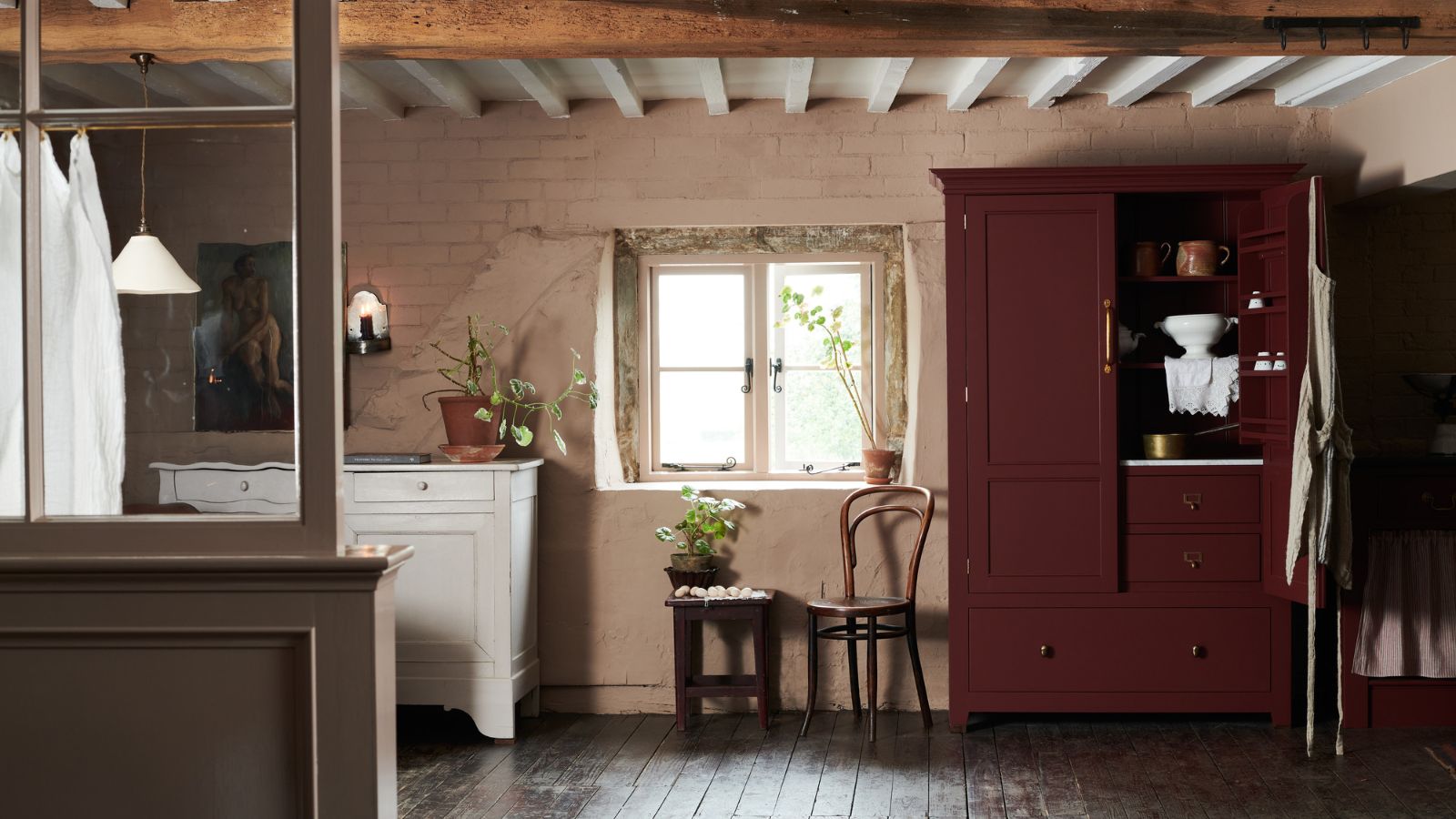Experts say to only use homemade compost after testing it with this fail-safe method – they say it will guarantee healthy soil and support plant growth
Simply grab some fast-growing seeds and observe how they germinate in your compost


Making your own compost is rewarding and a great way to use up waste. But, it can be tricky to determine when it's time to use your compost. Luckily, though, composting experts have shared the easiest hack to test if homemade compost is ready to use.
Making your own compost takes some time to master, so it's not uncommon for gardeners to try and use it before it's really ready for spreading in the yard. But, by just planting a fast-growing seed, compost experts say you'll be able to know if your compost is ready for use.
It's as simple as seeing whether plants that usually take little time to sprout do so in the compost you've made. Here, we take a closer look at this easy test, plus the experts share other signs to look out for when trying to determine if your compost is ready to use.
How to check if your homemade compost is ready

To test if homemade compost is ready to use, composting experts recommend planting fast-growing seeds:
'The best ones to use are those that germinate quickly (in three-to-five days) and are easily affected by soil health and quality,' says compost expert, Ryan Cerrato.
It will then be clear as to whether your compost is nutrient-rich and has the right structure to support seed germination. If the fast-growing flowers and fast-growing vegetables don't germinate in their usual quick time, it's likely your compost isn't yet of the right quality.
Ryan recommends growing wheatgrass (seeds from Amazon), but other options include radishes (seeds from Burpee), or marigolds (seeds from Amazon).
It isn't just a case of whether the flowers and vegetables sprout, however. You should also allow for some observation time to see whether any leaves turn yellow or if seedlings begin to struggle - signs your compost isn't providing sufficient essential plant nutrients for long-term growth.

Ryan is a certified composting expert and vice president at Denali. He advises on a range of topics to do with making your own compost.
Other signs your homemade compost is ready to use

There are some other signs you can take note of to test if homemade compost is ready.
For example, your compost should 'smell earthy and neutral, not sour, ammonia-like, or rotten,' says Lauren Click, founder of Let's Go Compost.
If your compost smells bad, it's a sign it's too wet and there's insufficient aeration. To stop compost smelling bad, you need to keep your pile aerobic by regularly turning it (with this compost turning tool from Amazon), including ventilation in your compost bin, and getting the balance of green and brown materials right.
Other than smell, you can also pay attention to the texture of your compost, Lauren notes. 'It should be uniform, crumbly, and dark brown with no recognizable food or plant material,' she explains.
If you do have large materials in your compost, use methods to speed up composting that will break down materials more quickly. This includes aerating your compost heap, keeping temperatures up, and shredding materials so they're smaller in the first place.
Temperature is another tell-tale sign, which is why you should consider purchasing a compost thermometer (from Amazon).
'The temperature should be ambient,' says Lauren. 'Mature compost no longer generates internal heat.'
If your compost is still steaming from the middle, it's unlikely it's ready to use. Keep turning it to aerate and help materials break down.

Lauren is the founder of Let's Go Compost, a 501(c)(3) non-profit with a mission to make composting free and accessible throughout the United States. Lauren works both in the dirt (literally) with public schools and community gardens, while also remaining focused on the big picture - working with large organizations and policymakers to ensure composting accessibility and affordability are kept front of mind as infrastructure is developed.
FAQs
Does homemade compost have to sit before it can be used?
Finished homemade compost can be used straight away in your yard, but your compost ingredients do need to be fully decomposed before you can use it. You should therefore let your compost ingredients sit in your compost bin until it has all broken down, making sure to turn it regularly for aeration and to help speed up the decomposition process.
Something that will help your homemade compost be ready sooner is starting a compost heap at the optimal time. While it is possible to start a compost heap at any point in the year, spring is a good time to make the most of warmer temperatures and the garden waste you accumulate from ticking things off your spring gardening checklist.
Sign up to the Homes & Gardens newsletter
Design expertise in your inbox – from inspiring decorating ideas and beautiful celebrity homes to practical gardening advice and shopping round-ups.

Tenielle is a Gardens News Writer at Homes & Gardens. She holds a qualification in MA Magazine Journalism and has over six years of journalistic experience. Before coming to Homes & Gardens, Tenielle was in the editorial department at the Royal Horticultural Society and worked on The Garden magazine. As our in-house houseplant expert, Tenielle writes on a range of solutions to houseplant problems, as well as other 'how to' guides, inspiring garden projects, and the latest gardening news. When she isn't writing, Tenielle can be found propagating her ever-growing collection of indoor plants, helping others overcome common houseplant pests and diseases, volunteering at a local gardening club, and attending gardening workshops, like a composting masterclass.
You must confirm your public display name before commenting
Please logout and then login again, you will then be prompted to enter your display name.
-
 Thoughtful modernism – how one Dallas home makes bold contemporary design feel warm, welcoming, and comfortable
Thoughtful modernism – how one Dallas home makes bold contemporary design feel warm, welcoming, and comfortableWith its mix of textural finishes and carefully curated furnishings, this modernist home is a refreshing retreat
By Karen Darlow Published
-
 'Wick away the ick' – 6 things people with clean laundry rooms always do to make this hardworking space shine
'Wick away the ick' – 6 things people with clean laundry rooms always do to make this hardworking space shineThese tips on how to clean your laundry room will banish grime
By Seraphina Di Mizzurati Published